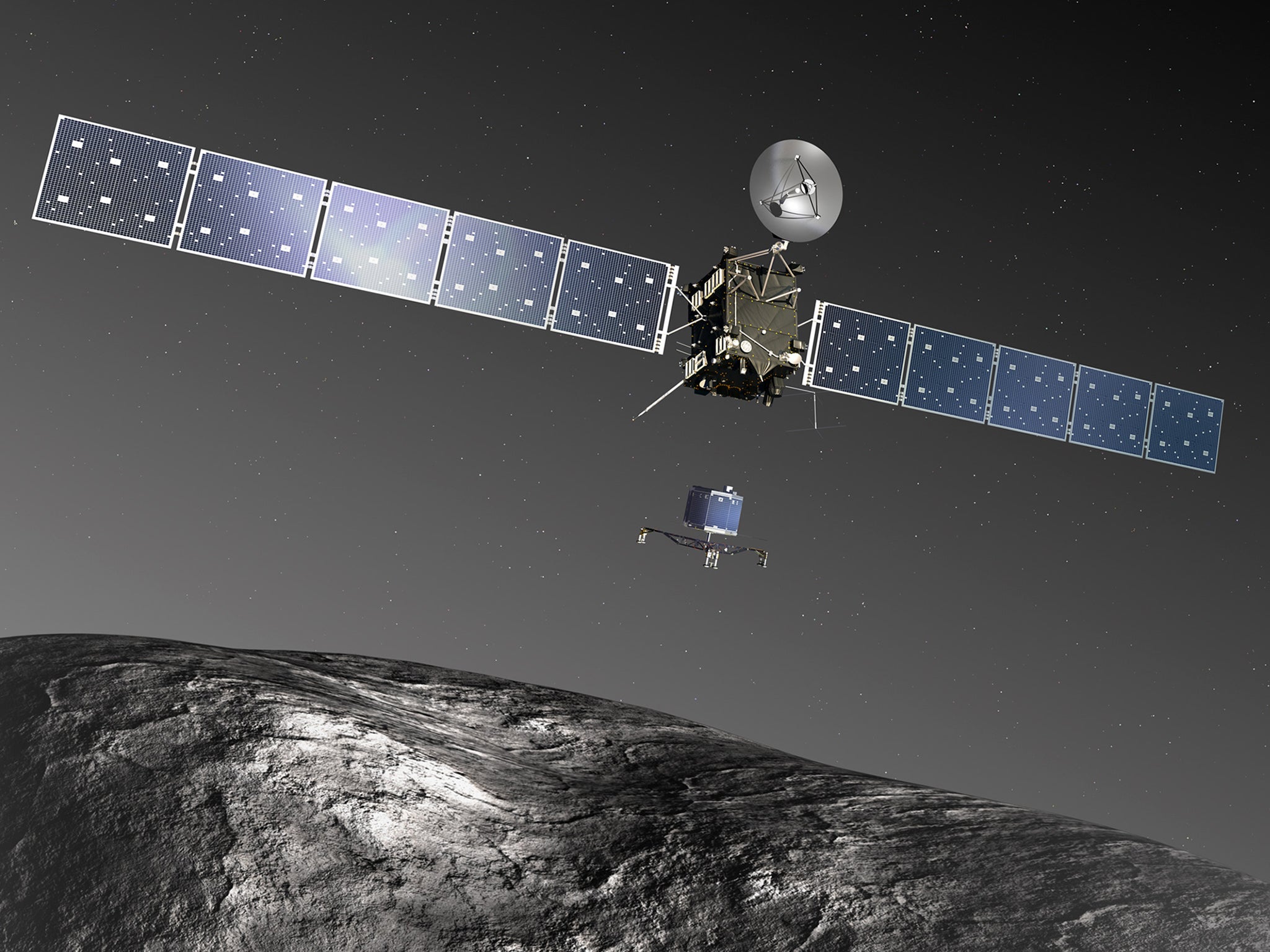Will the Rosetta spacecraft wake up today after two-year sleep? It is due to make 24,600mph comet landing
The vessel is being woken, hopefully, by the 'most important alarm clock in the solar system'

Your support helps us to tell the story
From reproductive rights to climate change to Big Tech, The Independent is on the ground when the story is developing. Whether it's investigating the financials of Elon Musk's pro-Trump PAC or producing our latest documentary, 'The A Word', which shines a light on the American women fighting for reproductive rights, we know how important it is to parse out the facts from the messaging.
At such a critical moment in US history, we need reporters on the ground. Your donation allows us to keep sending journalists to speak to both sides of the story.
The Independent is trusted by Americans across the entire political spectrum. And unlike many other quality news outlets, we choose not to lock Americans out of our reporting and analysis with paywalls. We believe quality journalism should be available to everyone, paid for by those who can afford it.
Your support makes all the difference.Scientists are waiting for the first signs of life from a comet-chasing space probe 800 million kilometres from Earth.
The European Space Agency’s Rosetta spacecraft is due to rendezvous with the 67P/Churyumov–Gerasimenko comet next August – where it will attempt to perform one of the most technologically advanced missions ever undertaken.
The probe, which was sent into space in 2004 and has spent the past two and a half years in a deep sleep, has been programmed to ‘wake itself’ at 10am today by what the agency has called the ‘most important alarm clock in the solar system’.
It will take up to six hours for the vessel’s star trackers to warm up – and only then can it attempt to reconnect with the ESA control room in Darmstadt, Germany. It is then expected to take around 45 minutes for the signal to reach home, meaning controllers will be tentatively listening out for the signal between 17:30 and 18:30 GMT to determine if the mission is still on track.
The Rosetta craft has been chasing down the comet, which is hurtling through space at 24,600 mph, for a decade since launching in 2004.
As it is impossible for it to achieve the speed needed required, the spacecraft has completed three flybys of Earth and one of Mars to build up pace using the planets' gravitational pulls.
Operating on solar energy alone, the spacecraft was placed into a deep sleep in mid-2011 in order to conserve energy as it cruised far away from the Sun’s gaze and out towards the orbit of Jupiter. It has been out of contact with Earth ever since.
It is hoped that the Rosetta will finally catch up with the comet in August when it will spend a couple of months studying and mapping the 2.5-mile wide ball of ice and dust, before dropping a small robot on its surface to collect samples and take pictures. The project has been compared to attempting to land a fly on a speeding bullet.
European Space Agency project scientist Matt Taylor compared the mission to the film 'Armageddon’ - in which Bruce Willis’s character lands on an asteroid to prevent it from destroying Earth.
“We look at comets as being a time capsule, they are relics from the beginning of the solar system,” added Mr Taylor, speaking to The Sunday Telegraph. “We felt we had to go to one.”
Fred Jansen, ESA’s Rosetta mission manager, added: “We’re very excited to have this important milestone in sight, but we’ll be anxious to assess the health of the spacecraft after Rosetta has spent nearly 10 years in space.”
Join our commenting forum
Join thought-provoking conversations, follow other Independent readers and see their replies
Comments